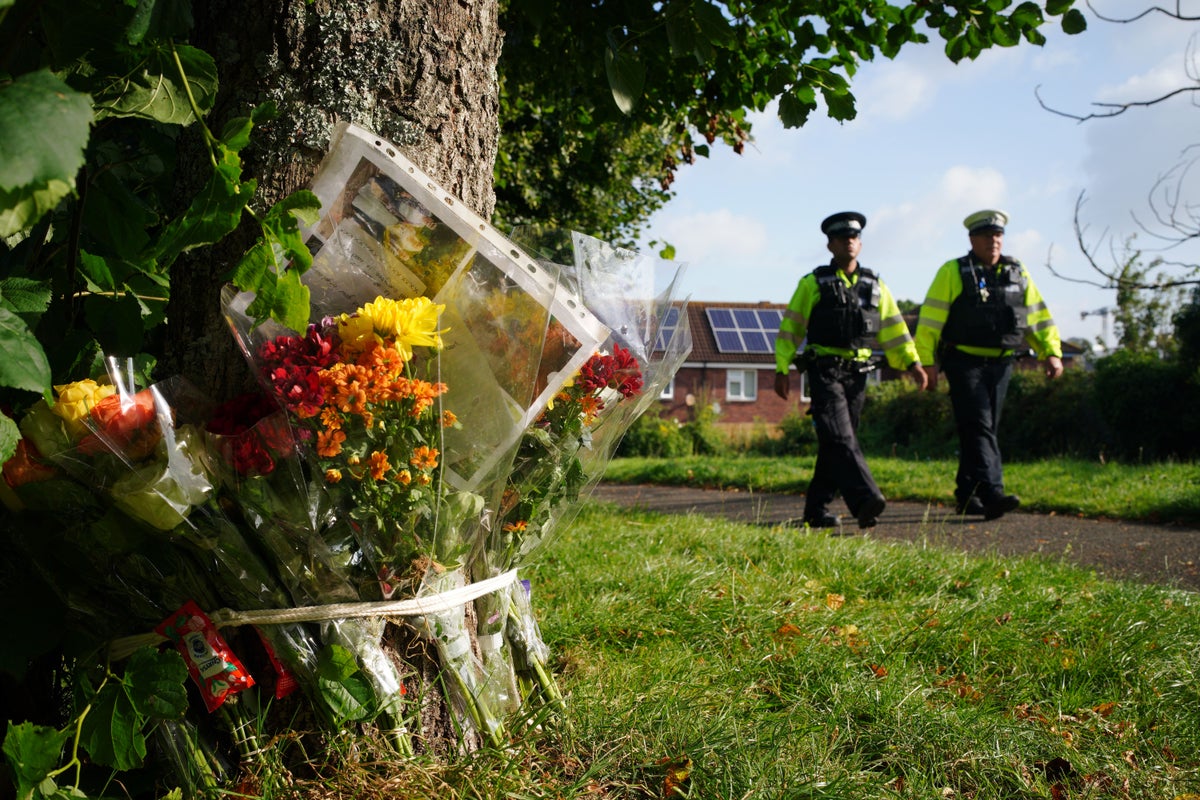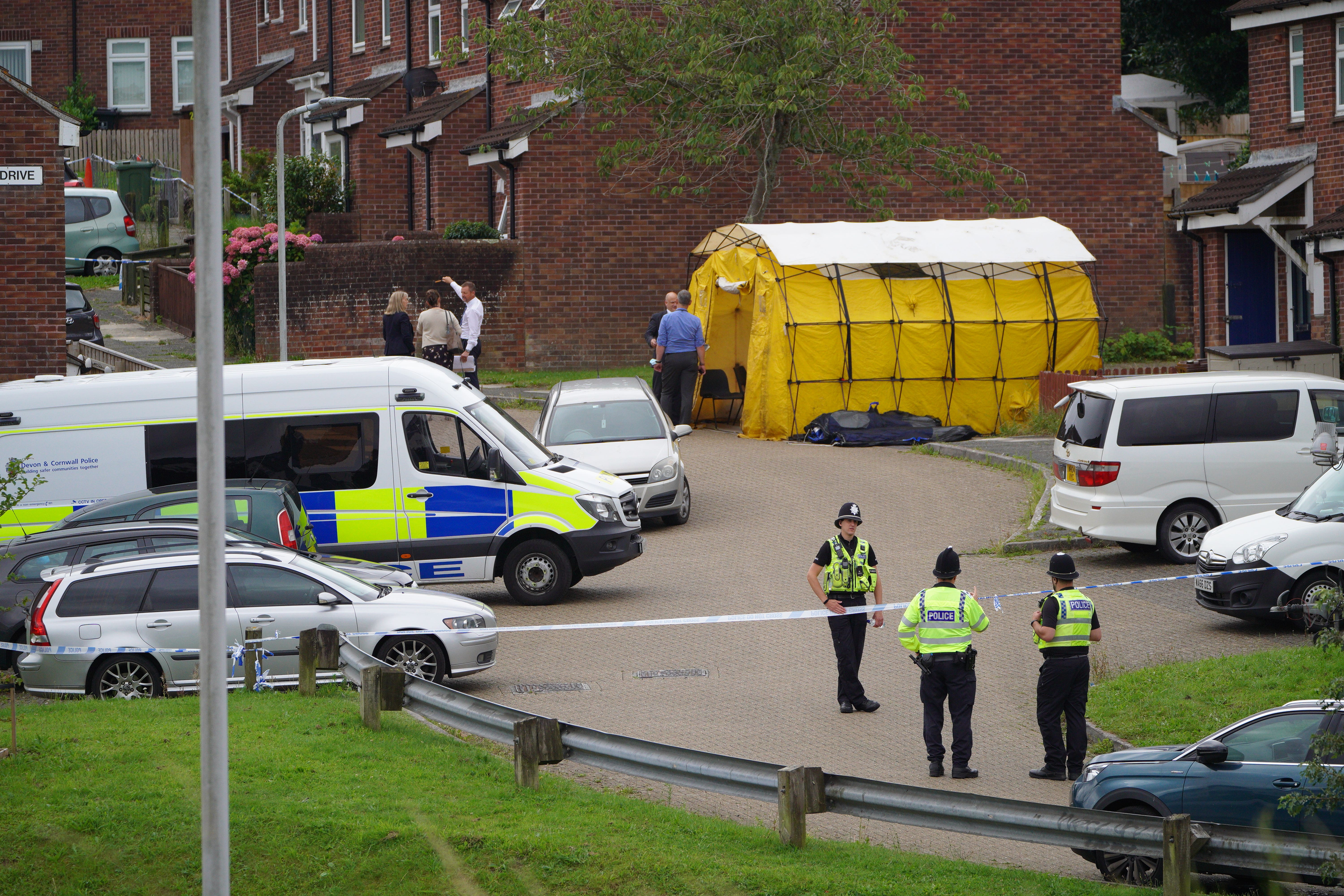
The police staff member who recommended Jake Davison be granted a shotgun certificate had not received any formal training to do his job, an inquest heard.
David Rees processed Davison’s application after he applied for a licence in July 2017 and made a formal recommendation accompanied by a report that he sent to a supervisor for approval.
The inquest heard as part of the assessment process Mr Rees, a firearms inquiry officer, sought information from Davison’s GP and spoke to a former teacher who was his referee.
He also spoke with the 22-year-old and his mother, as well as Davison’s uncle who was a licenced shotgun holder.
In January 2018, Davison was granted a shotgun certificate which was valid for five years and in December 2020 it was seized, along with his firearm, after he assaulted two teenagers.
The certificate and weapon were returned on July 9 2021.
On August 12 the apprentice crane operator killed his mother Maxine Davison, 51, three-year-old Sophie Martyn, her father, Lee, 43, Stephen Washington, 59, and Kate Shepherd, 66, in the Keyham area of Plymouth.
The inquest heard Mr Rees, a former armed police officer and Royal Marine, took on the role within Devon and Cornwall Police’s firearms licensing unit in May 2016 and worked there until November 2021.
Giving evidence, he told the jury after starting in the role he did not receive any formal training in understanding the Home Office guidance on issuing firearms certificates, or in domestic violence or mental health.
“Nothing I would describe as training. The training was done in a mentoring/buddy system – learning on the job,” he said.
“No specific training, none at all.”
Mr Rees said he had no prior knowledge of autism and Asperger’s syndrome but did his own research after Davison had declared the conditions on his application.
After considering all the information he had about Davison’s application he wrote a report and sent it to his supervisor for review and approval, the witness said.
“I always thought it would be a recommendation.
“I was never told the decision was mine and I assumed someone would read it,” he said.
“We have to write a report.
“To my mind what’s the point in writing a report if no one was going to read it.”
He said that he was unaware any of his cases had been “dip sampled” for review by his line managers.
“I do not recall any concerns that were raised by the supervisor or manager regarding any of the work I did,” he said.
Mr Rees said he was unaware of meetings between the Home Office and British Medical Association where GPs had expressed concerns they were being asked to provide a medical opinion outside of their expertise on an applicant’s suitability for a firearms licence.
He said it was “fairly common” for GPs to decline the request to supply medical information about an applicant.
The inquest heard Mr Rees had checked police records as part of his assessment and knew about two assaults Davison had committed while a student at Mount Tamar School.
In October 2020, when aged 12, Davison assaulted two teachers and “due to ongoing possible mental health issues which mother is referring to GP and possible bullying at school. Has assaulted two teachers at school. After the incident died down he stated he ‘blew his top’ and had been bullied at school and has taken his anger out on the wrong people. Will be dealt with by restorative justice.”

The report noted he “put teacher in headlock twice” and was taken to an office where he “struggled, spat on both teachers and head-butted one of the teachers”.
In a second incident, aged 13, he assaulted another student “punching him once to the face, visible injury caused”.
Another police report from 2015 recorded there had been a “verbal argument” between Davison and his father, Mark, at his home in Biddick Drive in which his father “has been ejected from the property by son”.
The log noted no offences had been committed.
Mr Rees was asked about how the school incidents formed part of his decision-making process, he replied: “I wasn’t concerned because it was committed in school and dealt with internally by means of an apology.”
The inquest heard it took more than two months after Davison assaulted two teenagers in a park for his shotgun and certificate to be seized.
A detective decided not to charge Davison and he was instead enrolled on a restorative justice programme.

In an email, the Pathfinder scheme worker told police: “He has autism and also issues with anger management. Is this something you are aware of?
“Does this impact upon him being a suitable person to be a licensed shotgun holder? Can you let me know?”
Mr Rees said having received the email he decided to seize the certificate and weapon, but said a decision to revoke the licence could only be taken by a senior manager.
Asked why he did not recommend revoking, he replied: “The expectation from the management would be for me to wait for the end of the Pathfinder scheme.
“If I had put in a report (to revoke), it would have been sent back to me to wait for the results of the restorative justice scheme.”
Bridget Dolan KC, counsel to the inquest, suggested to Mr Rees there was a “default” position in the department that licences would not be revoked unless there was a “extreme concern”.
“Yes,” Mr Rees replied.
The inquest continues.







